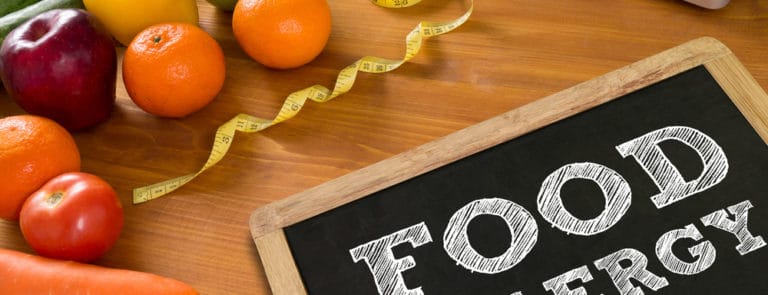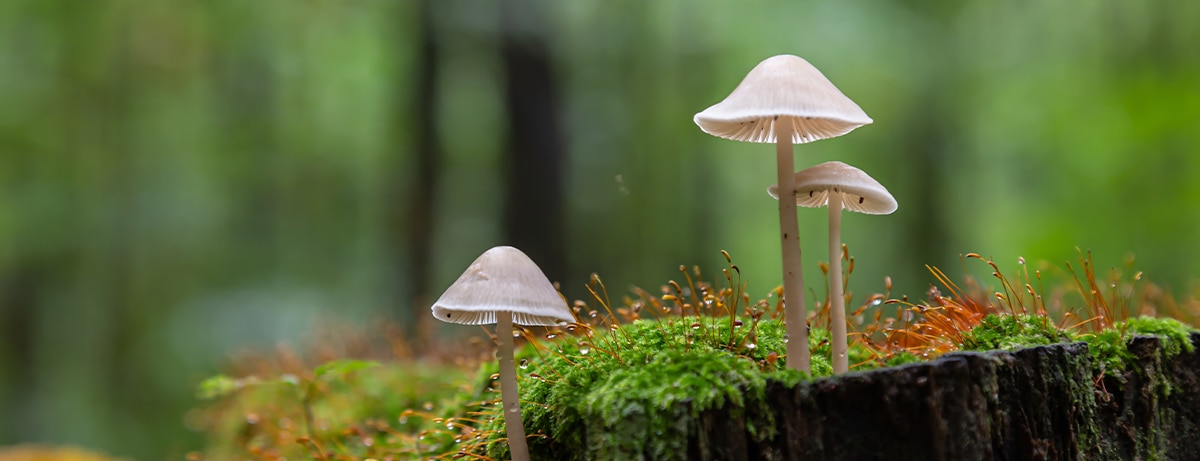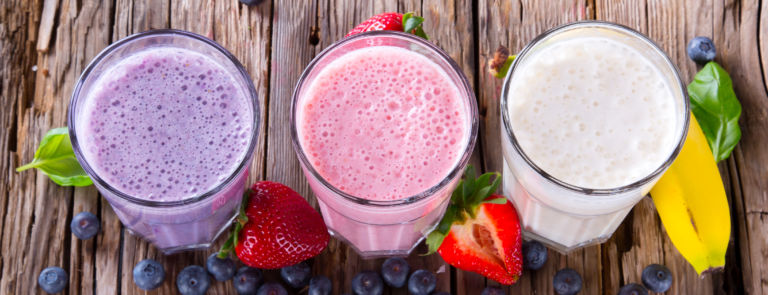10% off £35
Best vitamin C food & drink sources
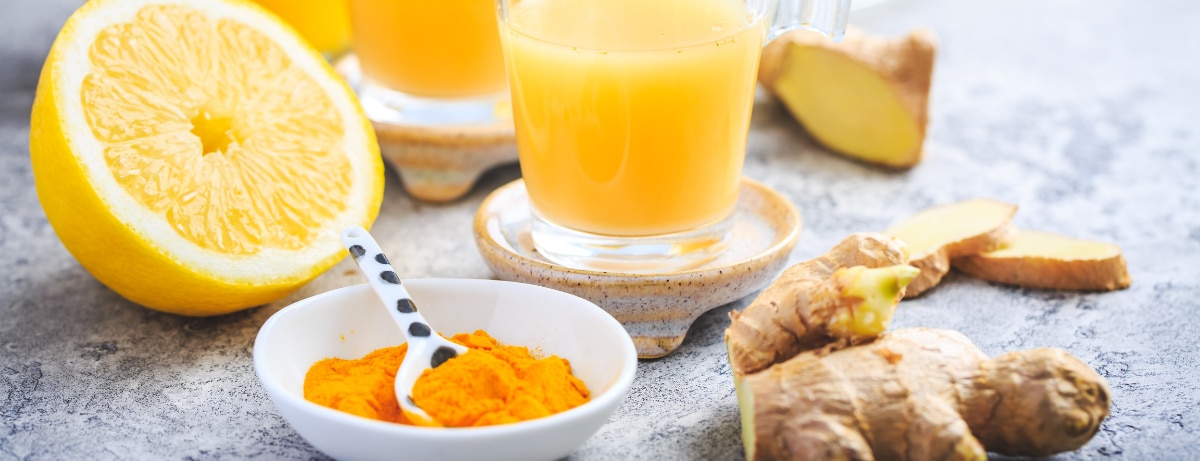
Vitamin C food & drink sources: fruits & vegetables We’ve heard it all before – you’ve got to eat your fruit and veg!
Every nutrient’s important, but we’d be pretty stuck without the essential vitamin C. It’s responsible for helping to support everything from our skin, blood, and bones to our immune system.
And serious vitamin C deficiency can lead to scurvy – something you definitely want to avoid.
Luckily, vitamin C is easy to find in fruit and veg. Here are some of the top sources.
Skip to:
Foods high in vitamin C
Oranges get the rep for being high in vitamin C, but they’re not the only source. In fact, they’re not even top of the list.
When it comes to fruit and veg, “eating the rainbow” is a great place to start. Incorporating a wide variety of fresh, brightly coloured produce is the best way to ensure you have a balanced diet.
However, if you’re specifically looking to get some more vitamin C, try...
1. Kakadu plum
Found in Australia, this superfood boasts around 100 times the vitamin C of an orange.
The kakadu plum has the highest known concentration of vitamin C. You might not be able to find this as easily as you would an orange, but don’t fret – there are also kakadu plum skincare products, like brightening serums and eye creams.
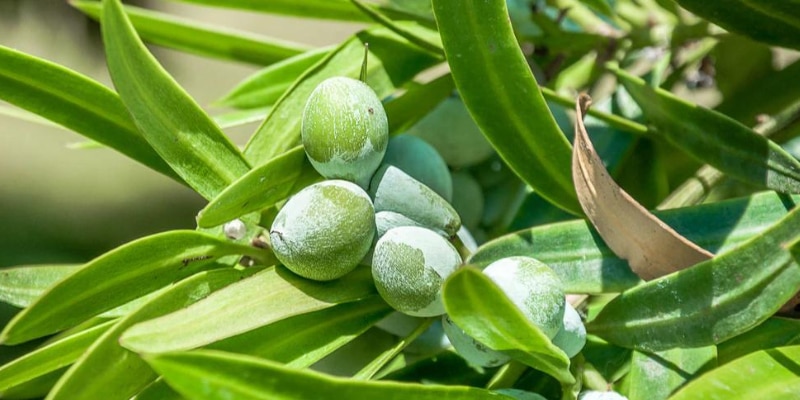

2. Citrus fruits
Not all citrus fruits are created equal!
Oranges are the highest source of vitamin C, with about 147% of your recommended dietary allowance (RDA) in a medium orange. ¹ ²
Next up are lemons, with 77% per fruit, closely followed by grapefruits at 73%. ³ ⁴
Limes have less vitamin C than their citrus counterparts at 49% RDA – but that’s still a substantial amount for one small fruit. ⁵
4. Strawberries
80g of strawberries will provide about 114% of your daily recommended vitamin C intake. So, they’re a snack that really makes a difference to your nutrition. ⁶
Handpicked content: Vitamin C: Why we need it & where to get it
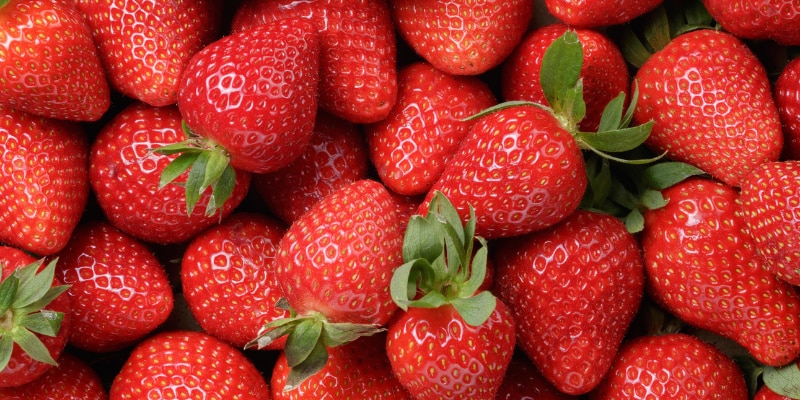

5. Tomatoes
Tomatoes might seem humble, but they’re actually a superfood. They’re packed with beta-carotene, vitamins, C, E, K, and some B vitamins.²
The amount of vitamin C depends on the type of tomatoes, but you can expect about 19mg of vitamin C in a cup of raw, fresh cherry tomatoes (or about 22mg per 100g).³
If you want a real boost, go for sun-dried tomatoes – they've got nearly double the vitamin C at 39mg per 100g.⁷
6. Broccoli
Yet another reason to love broccoli (if you don’t already) - it’s an unsuspecting orange-beater. You’ll find 65mg of vitamin C per 100g of broccoli, compared to an orange’s 59mg.⁸
7. Kale
Don’t underestimate this leafy superfood; you’ll find a whopping 110mg of vitamin C per 100g. ⁹
Kale is also packed with antioxidants, vitamins, and nutrients – so much that we’ve written a whole article about the benefits of kale.
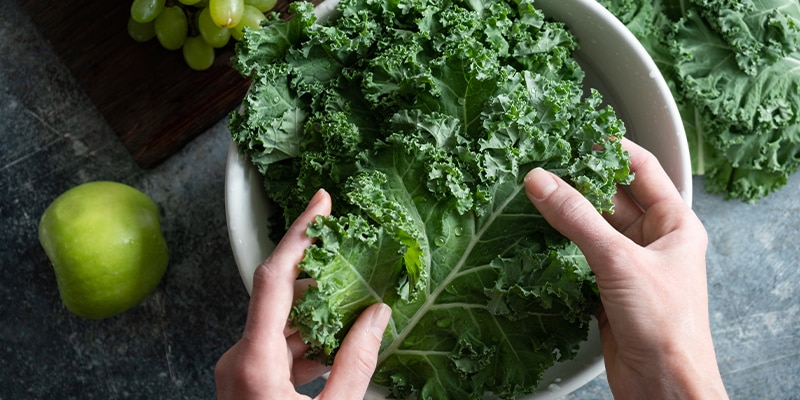

8. Brussels sprouts
Not everyone can stomach them, but sprouts are a rich source of vitamin C. You’ll meet your recommended daily 40mg in a single serving (about 8 sprouts). ¹ ¹⁰
9. Potatoes
That’s right! Potatoes contribute towards your daily vitamin C intake, too.
It depends on the variety as to how much they contain, but vitamin C is the most abundant vitamin in potatoes.
Like most fruit and veg, potatoes lose some of their vitamin C with cooking – but you can leave the skin on to help a little. ¹¹
10. Lychees
Often overlooked, lychees are packed with vitamin C, as well as being good sources of copper and potassium.
100g will deliver 71.5mg of vitamin C, well over the NHS recommended daily intake. ¹² ¹
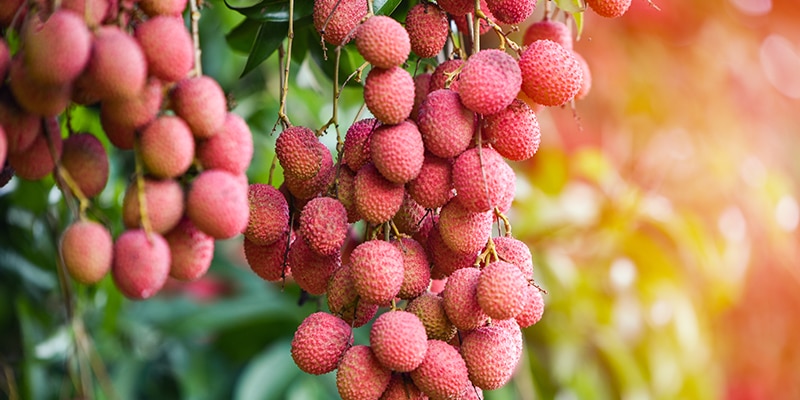

...and so many more
And that’s just 10! There are too many foods containing vitamin C to name...but other notable contenders include:
- Mango
- Apricots
- Pineapple
- Courgettes
- Peppers (including chilli peppers)
- Cauliflower
Drinks high in vitamin C
Blend any of the fruit and veg above and you’ll get a great source of vitamin C.
But don’t be fooled into thinking it’s a like-for-like swap. Nutritionally speaking, fruit juice doesn’t offer quite the same as a whole fruit. You can lose insoluble fibre, which helps us to feel full and delays the absorption of sugar. ¹³
Plus, many juices and smoothies you find in supermarkets contain added sugar or preservatives.
But good news – vitamin C levels seem to be fairly unaffected.
If fruit juice isn’t for you, try:
- Infusing your water with fruit
- Making a soup with vitamin C-rich vegetables
- Making a fruit or herbal tea
- Drinking a drink fortified with vitamin C – some sports drinks or nutritionally complete foods contain added vitamin C. However, be aware of the nutritional value in other areas to see if they fit into your diet.
Vitamin C for vegetarians
Being vegetarian or vegan shouldn’t impact your vitamin C intake at all – the best sources come from fresh fruit and vegetables.
In fact, there’s another great bonus: vitamin C-rich foods help increase your iron absorption. Vegetarians and vegans can sometimes be more at risk of iron deficiency, so getting your vitamin C helps in more ways than one.
Handpicked content: Iron: functions, foods, deficiency, & supplements
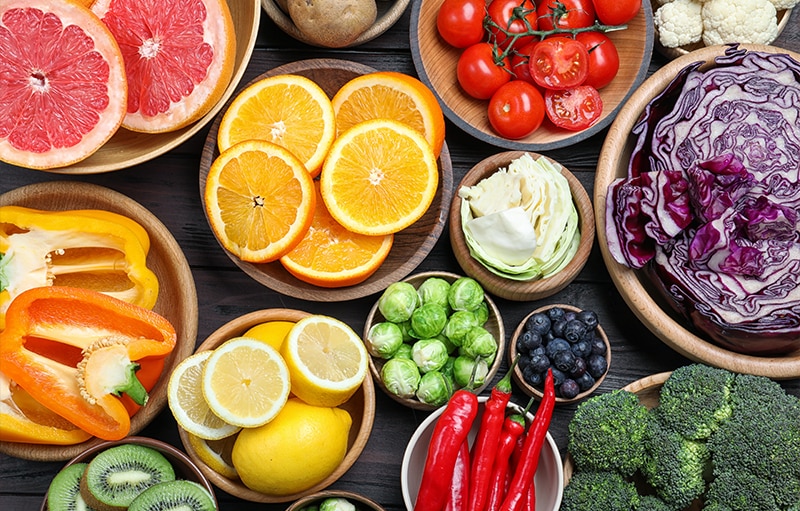

The final say
When it comes to getting enough vitamin C, you’re in luck – there are dozens of fruits and vegetables that will up your levels.
Most people get all the vitamin C they need with a balanced diet, but look out for signs of vitamin C deficiency if you think you might be at risk.
You should always aim to get your nutrients through your diet where you can, but taking a vitamin C supplement can help if this is difficult.
The advice in this article is for information only and should not replace medical care. Please check with your GP or healthcare professional before trying any supplements, treatments or remedies. Food supplements must not be used as a substitute for a varied and balanced diet and a healthy lifestyle.
Before taking any supplements or minerals, it’s best to make sure you’re getting all the nutrients through your diet first.
1. https://www.nhs.uk/conditions/vitamins-and-minerals/vitamin-c/
2. https://fdc.nal.usda.gov/fdc-app.html#/food-details/746771/nutrients
3. https://www.verywellfit.com/lemons-nutrition-facts-calories-and-health-benefits-4114176
4. https://www.bbcgoodfood.com/howto/guide/health-benefits-grapefruit
5. https://nutritiondata.self.com/facts/fruits-and-fruit-juices/1942/2
6. https://www.bbcgoodfood.com/howto/guide/ingredient-focus-strawberries
7. https://ods.od.nih.gov/factsheets/VitaminC-HealthProfessional/
9. https://www.bbcgoodfood.com/howto/guide/health-benefits-kale
10. https://www.bbcgoodfood.com/howto/guide/health-benefits-brussels-sprouts
11. https://pubmed.ncbi.nlm.nih.gov/30441846/
12. https://fdc.nal.usda.gov/fdc-app.html#/food-details/169086/nutrients
13. https://www.bbcgoodfood.com/howto/guide/should-i-still-drink-fruit-juice
